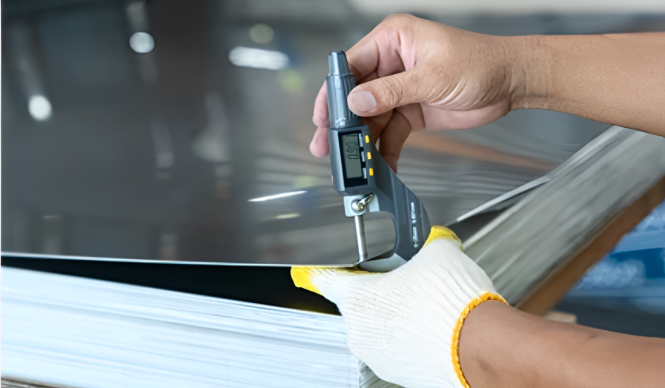Is Titanium Magnetic?
Titanium with all its characteristics such as high strength, low density, and extreme corrosion resistance has become one of the most widely used materials today. However, part that many often find rather curious is its ability to exhibit magnetic properties. Is Titanium Magnetic? In this ultimate guide, we will discuss titanium’s magnetic characteristics in detail to assist you in determining whether this extraordinary metal has any interaction with magnets and when it may exhibit magnetic behavior.
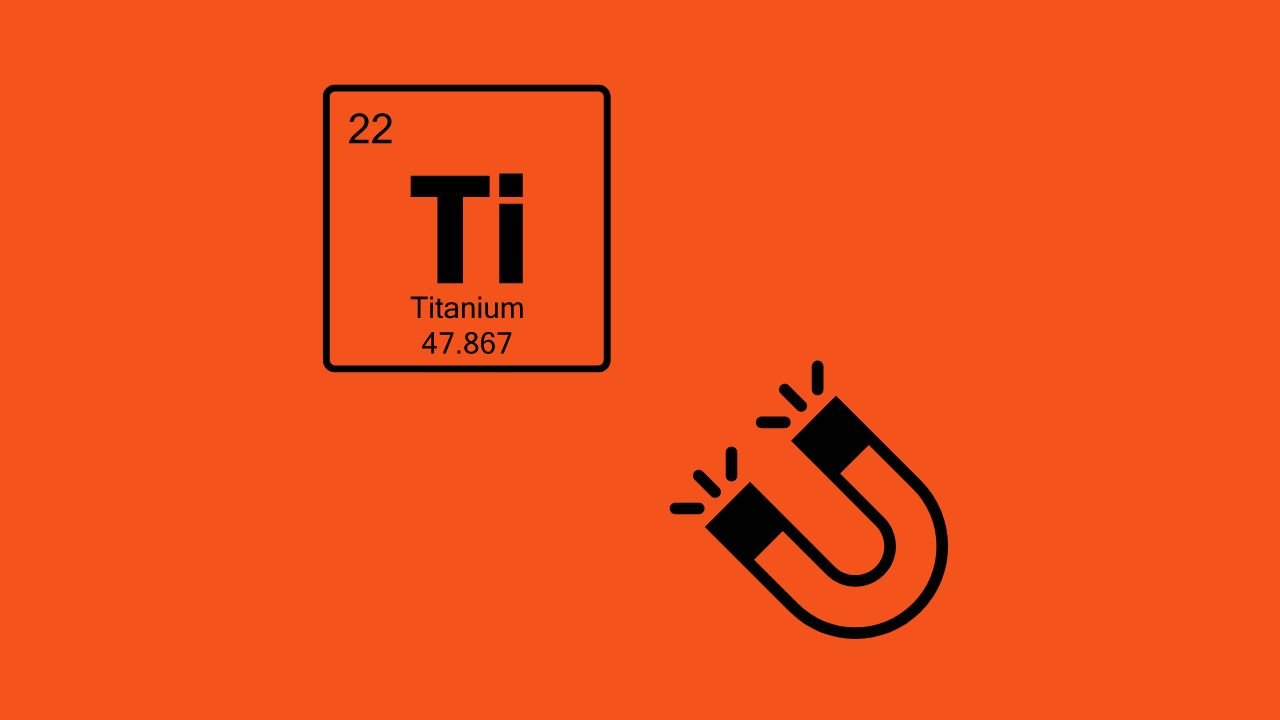
Table of Contents
ToggleWhat is Titanium and Its Characteristics
Before answering the main question: When answering Is Titanium Magnetic, there is the need to first study some key features about this metal that gives it that nature.
What Makes Titanium Special?
It is about 45 percent lighter than steel, and thus appropriate for companies that require lightweight products, for instance, the aircraft sector. Furthermore, corrosion is another property of titanium making it ideal for lasting in such conditions since it does not corrode easily.
Titanium in Various Industries
Titanium usage because of its properties popular in following industries:
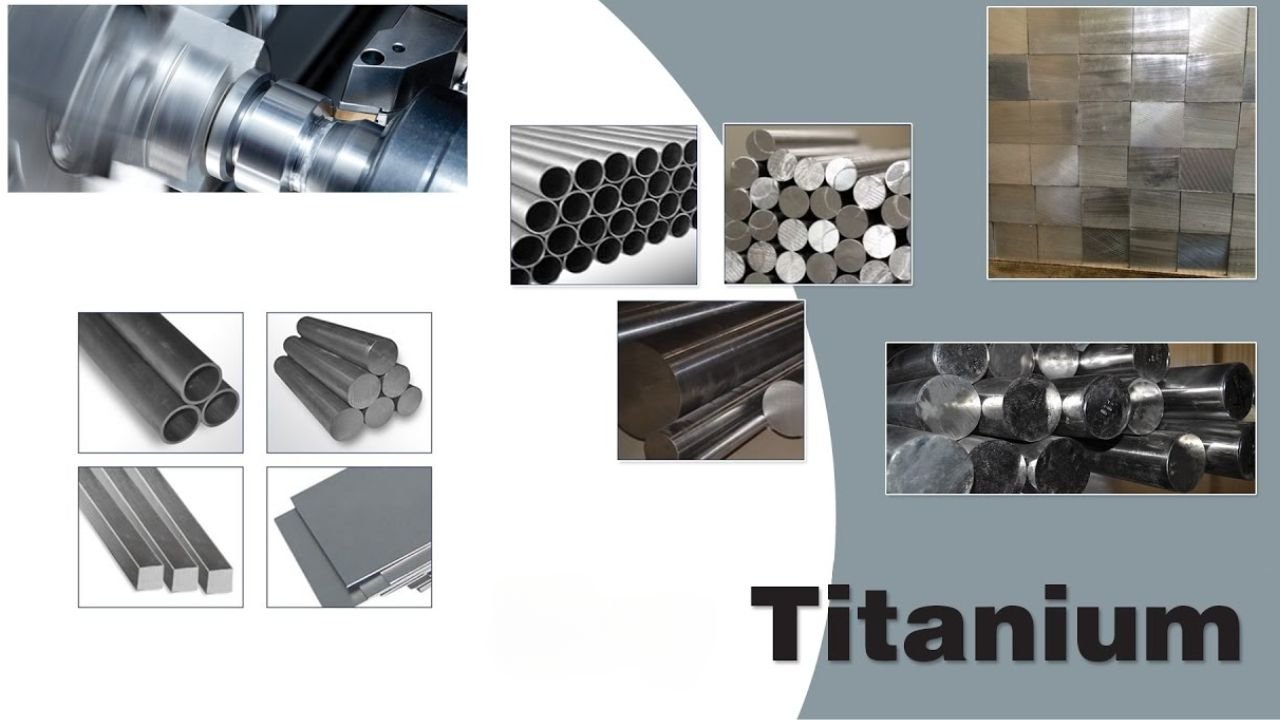
Aerospace: Applied in structures, components, and parts of airplanes as well as in engines.
Medical: Used in implants and prosthetics because of its compatibility with body tissues, with advanced titanium machining enabling highly accurate, patient-specific designs.
Power Generation: They are applied as in turbines for blade or heat exchangers.
Consumer Goods: Used in expensive sporting equipment and jewelries.
Such applications demonstrate why the question Is Titanium Magnetic is relevant, particularly when it concerns its operation in high magnetic field surroundings, for example, in the medical facility, or electric manufacturing industry.
Is Titanium Magnetic? An In-Depth Analysis
Now, let’s address the core question: Whether Titanium Is Magnetic or Not The quick reply to the question is no, primarily due to the fact that, normally, titanium is not a magnetic material. However, it is not so simple, and several characteristics can affect its magnetic properties.
Pure Titanium: Non-Magnetic Nature
The titaniums atomic configuration represents non-existence of any unpair electrons. This is because unpaired electrons are essential for generating a magnetic moment that is essential for magmetism in a given material. Particularly, the electrons are pairing hence; they possess opposite magnetic moments that leave an overall magnetic moment in Ti equal to zero.
Does Titanium Stick to a Magnet?
The answer is no. If you try to put a magnet nearby a piece made of pure titanium, you will find that the piece is not attracted to it, reinforcement of the fact that it is a non-magnetic material.
Factors That Can Influence Titanium’s Magnetic Properties
Now let’s discuss these factors in detail.
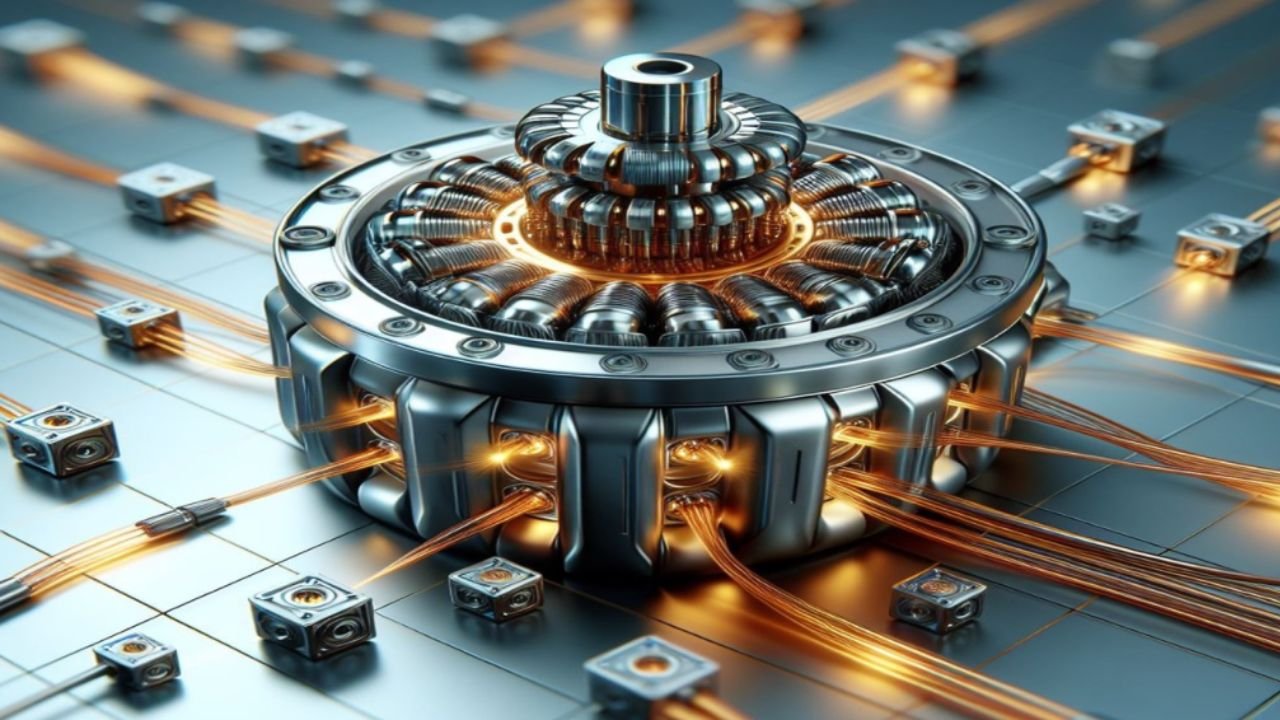
Alloying Elements
That is, depending on the other metals that are combined with titanium, its magnetic characteristics may vary. For example, intentional inclusion of ferromagnetic constituents such as iron can introduce some level of magnetization in the formation of the alloy. However, this magnetism is often weak and temporary.
Interactions between titanium and magnet in alloy forms are therefore directly influenced by the type and content of the alloying ingredients. For instance, an alloy comprising of a large portion of iron may have even small levels of magnetism but it shall not be as magnetic as iron.
Impurities
Other characteristics such as defects are also confirmed to have impacts on the magnetic characteristic of titanium. The existence of small portions of magnetic elements contribute to overall titanium magnetism. This is a rather unusual occurrence in high purity rust-resistant titanium but can occur in other less refined materials or in certain processing techniques.
Pressure and Temperature
- Pressure: Under high pressure, micro stress can be exerted on titanium and this may alter its crystal lattice, giving way for slight moments of magnetism. But this induced magnetism is very weak and in most cases the bar is not visibly magnetized if one tries to attract it with a magnet.
- Temperature: Liquids may be classified as ferromagnetic, paramagnetic, or diamagnetic depending on the nature of the molecules and the temperature relation to the curie point.
Magnetic Considerations – Alloys of Titanium
In this broad categories, it is generally the case that most titanium alloys are nonmagnetic as this attribute is inherent to titanium. Nonetheless, weak magnetisation may arise from the addition of specific alloying elements. For instance, if you mix titanium with iron, then such an alloy will have some magnetic characteristics, but this property is not permanent and may last only for a short period.
Titan Magnets and other specialized magnets can be tailored to work with titanium containing such elements but the interaction is not absolute and thereby does not make titanium a ferromagnetic material.
Magnetic Behavior in Titanium: Scientific Insights
While answering to is titanium magnetic? it is crucial to gain insights on how magnetism relates to different metals.
Electron Configuration and Magnetism
In metals, magnetism depends on the electrons, particularly the unpaired ones. So you maybe wondering How many unpaired electrons does titanium have?. Titanium Common Valence electrons configration of Titanium is [Ar] 3d2, which implies that there are 2 such electrons in the 3d orbital. But in liquid or metallic state, these electrons are free and hence their spins are also paired due to the structure of crystal lattice which has no overall net magnetic moment.
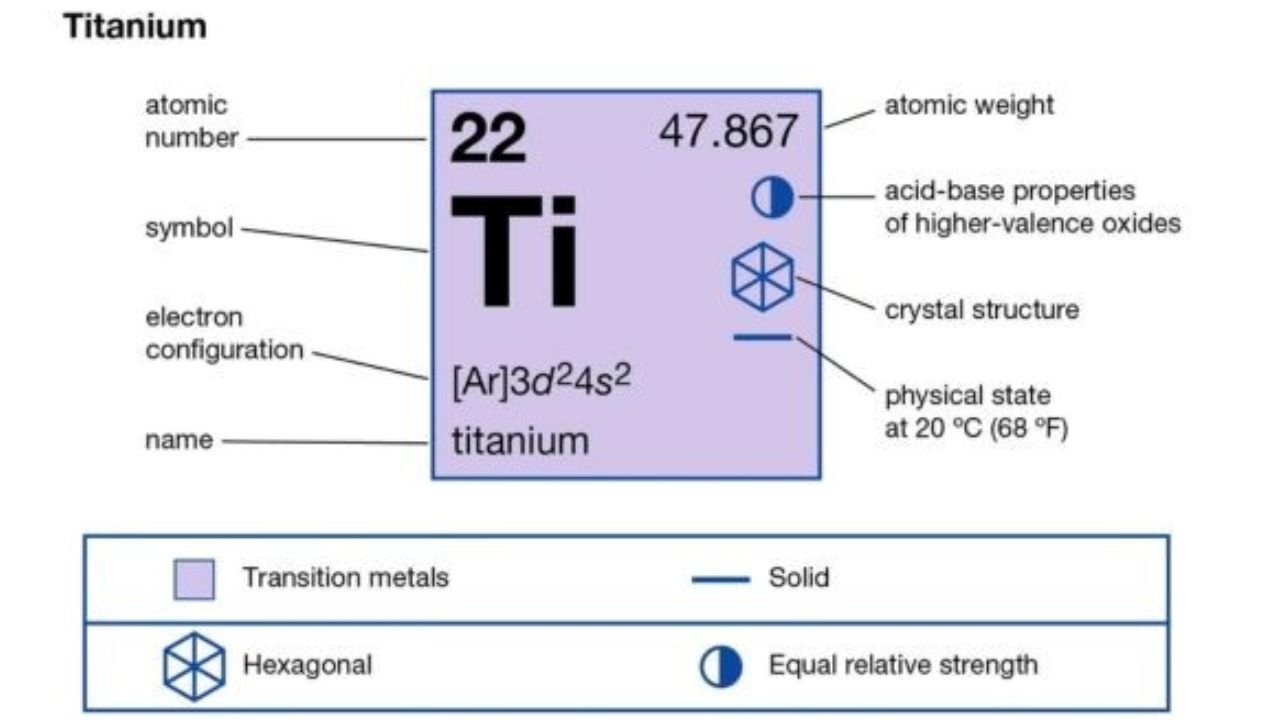
Paramagnetism vs. Diamagnetism
This is different from diamagnetic materials, which are slightly repelled by magnetic fields as well Diamagnetic materials have recently been found to be weakly repelled by magnetic fields. However in application, the paramagnetism in titanium is so minute that for all intents and purposes, the metal is not considered magnetic.
Magnetic Domains and Crystalline Structure
Titanium in its molecular structure comprises closely packed and systematically arranged Titanium atoms in a crystalline structure. They also arrange in an orderly manner that avoids any formation of dipoles from the individual parts caused by unpaired electrons, thus making the material nonmagnetic.
Practical Implications of Titanium’s Non-Magnetic Properties
Getting to know whether Is Titanium Magnetic can prove useful in the real world, particularly in sectors that focus on the use of magnets.
Medical Applications and MRI Safety
In the industrial world, the most visible application of this metal is in the area of medicine specifically in producing implants. Is Titanium Magnetic relevant here because titanium’s nonmagnetic characteristic makes implants unsuitable for MRI systems? This safety aspect is important, especially for any patient who is booked for an MRI scan.
CNC Machining and Manufacturing
In CNC machining, some machines employ magnets to hold the workpiece because they have more holding power than metal. Since do magnets stick to titanium these holders do not work with titanium and require other means of clamping. This could cause some hassle in the machining process and more steps have to be taken to firmly fix the titanium workpieces.
Power Generation and Turbine Blades
Turbine blades are used in power generation; because of this, there is little or no coupling between titanium and magnets, which is helpful. The fact that titanium is not magnetic means that the turbine blades will not affect magnetic fields present within the machinery hence proper functioning is promoted.
Comparing Titanium with Other Metals
In order to give more information about Is Titanium Magnetic it can be useful to look at other metals in connection with the magnetism.
Is Brass Magnetic or Not?
Brass usually has no magnetic field and is similar to titanium in this respect.
What Metal Does Not Stick to a Magnet?
- Titanium
- Aluminum
- Copper
- Gold
- Silver
This is particularly important in cases where magnetism hinders the performance of equipment using nonmagnetic metals.
Is Bronze Magnetic?
In most cases, bronze is considered non-magnetic; however, like brass, it can be magnetic to some extent due to the specific content of elements used in the build of bronze.
Can You Make Tungsten Magnetic?
It is evident that Tungsten is not magnetically attracted; nevertheless, it can possess some degree of magnetization depending on numerous conditions like when it forms an alloy with other magnetic metals or under high pressure. However, these cases are very rare and their number does not affect most use cases and practical applications.
Tin Magnetism
Tin is magnetic? The Tin is generally regarded as non-magnetic. Nonetheless, as with most nonmagnetic metals, titanium’s magnetic characteristics can also be affected by the presence of contaminants or by being combined with magnetic materials to yield weak magnetic traits.
Enhancing Titanium’s Magnetic Properties
Even though the titanium is a non-ferromagnetic material, sometimes techniques can make the titanium or its alloys partially or fully magnetic with regards to its application.
Alloying with Magnetic Elements
The incorporation of magnetic constituents such as iron can help in making titanium in some way magnetic.
Inducing Artificial Magnetism
The techniques used to introduce magnetism into titanium involve methods such as Treatment of Ti with magnetic field or magnetic layering. These methods can make magnet titanium useful for specific applications that demand temporary or low level magnetism.
Use of Titan Magnets
Titanium magnets are special magnets which are designed to work with titanium alloys containing magnetic constituents. These magnets are designed specifically to interact with the particular magnetic characteristics developed in the titanium alloy.
Applications Leveraging Titanium’s Magnetic Properties
As you now know that titanium is not a magnetic metal but becuase of its characteristics it is popular in dynamic fields.
Medical Implants
In the medical industry, the commentary made on titanium being non-magnetic is important especially in implant technology specifically for MRI use. There are noitches during MRI scans in patients with titanium implants and the image achieved is also a clear one.
Aerospace Components
In aerospace applications for example, titanium does not interfere with electronic equipment on a plane since it is nonmagnetic. It is crucial for preserving the reliability of avionic and navigational components.
Power Generation Equipment
Within power generation particularly in the turbine assemblies, the malleability and, more importantly, the fact that Titanium does not contain magnetic properties means that magnetic fields will not interfere with the running of generators and other Electromagnetic equipment.
Exploring Titanium’s Unpaired Electrons
Thus, knowing how unpaired electrons contribute to magnetism can explain Is Titanium Magnetic.
Electronic Configuration of Titanium
You can define it as an element with electronic configuration [Ar] 4s²3d². It is a paramagnetic complex because there are two unpaired electrons in the 3d orbital. Nonetheless, in metallic titanium, they are freely moving, paired electrons owing to the crystalline lattice structure and therefore, impossible to give rise to net magnetic moment.
Impact on Magnetism
Zero existence of the free electrons pair render titanium non-magnetic. However, in the atomic state of the metallic lattice, there are free electrons but the spin of these electrons neutralize each other’s magneticity.
Comparing Titanium with Ferromagnetic Metals
In a bid to fully understand the question ‘Is Titanium Magnetic’, it is helpful to make a comparison between Titanium and Ferromagnetic metals such as Iron.
Titanium vs. Iron
Iron on the other hand has unpaired electrons that give it excellent magnetic properties while in contrast, titanium has paired electrons and a crystal structure that do not allow any magnetic behavior.
Practical Tips for Working with Titanium and Magnets
The discovery of whether Is Titanium Magnetic can help in addressing issues of utilization and management of titanium in various fields.
Securing Titanium Workpieces
Question: When undergoing CNC machining does the magnet stick to titanium? No, which makes it necessary to use other means like mechanical clamps in holding titanium workpieces in the machining processes.
Magnetic Separators and Chip Collectors
There are some modern CNC machines that uses magnetic chip collectors. One disadvantage of using magnet titanium is that it does not attract these chips and the workers have to remove them manually to avoid heat generation and to keep the machines running efficiently.
Alloy Selection for Desired Properties
Magnetic characteristics also play an essential role in the choice of titanium alloys: considering the electrical magnetism of specific alloying components. If using titanium where there are no festivities of magnetic properties needed then do not introduce any ferromagnetic constituent. On the other hand, if slight magnetism is considered advantageous, add ingredients, such as iron in limited amounts.
Conclusion
It is significant to note that titanium in its completely natural state is not magnetic, which is helpful in a variety of applications where magnetism would be a difficulty, such as in orthopedic and cardiovascular applications and moving parts in airplanes. Nevertheless, the influence of magnetic properties of titanium can be defined by the presence of alloying elements, impurities, pressure, and temperature, though their effect remains rather limited. Such differences provide the foundation for comprehension of how one can make full use of the characteristics of titanium to meet the requirements of certain applications.
Frequently Asked Questions
Does a Magnet Stick to Titanium?
As a matter of fact, as defined as per the periodic table, pure titanium does not cling or adhere to a magnet. Thus, it is made to have no response to magnets so that it does not create any appeal to magnets.
Is Titanium Ferromagnetic?
Titanium is not ferromagnetic. It lacks any permanent magnetization and furthermore does not exhibit any substantial level of responsiveness to magnets.
Is Titanium Diamagnetic or Paramagnetic?
Paramagnetism is weaker in comparison to ferromagnetism; however, titanium has paramagnetic properties and some guidance upon exposure to powerful magnetic fields is disoriented when this field is turned off.
Do Magnets Stick to Brass?
Iron and steel are magnetizable but brass is not magnetizable unless it contains some iron or is made of brass mixed with magnetic metals.



